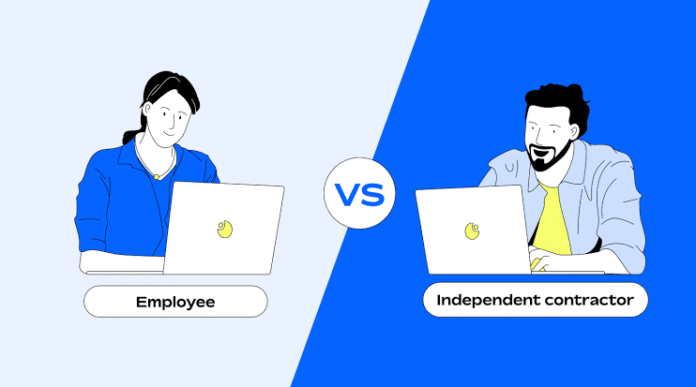Misclassifying workers as independent contractors instead of employees is a costly mistake many California businesses unknowingly make. The consequences? Lawsuits, back wages, and hefty penalties. To safeguard your business, it’s crucial to understand the key differences between these worker classifications. If you’re unsure how to properly classify your workforce, consulting with an Employment Lawyer in California can help you avoid legal trouble and stay compliant with state laws.
Why Does Worker Classification Matter?
The distinction between independent contractors and employees isn’t just a technicality—it directly impacts wages, benefits, taxes, and legal protections. Under federal and California state laws, employees are entitled to minimum wage, overtime pay, workers’ compensation, and other benefits. Independent contractors, however, are generally responsible for their taxes and don’t receive the same legal protections.
California has some of the strictest worker classification laws in the country, especially with the adoption of Assembly Bill 5 (AB 5) in 2020. This law uses the “ABC Test” to determine whether a worker is an independent contractors or an employee.
Breaking Down the ABC Test
Under the ABC Test, a worker is considered an independent contractor only if all three of the following conditions are met:
- A: The worker is free from the control and direction of the hiring entity in connection with work performance.
- B: The work performed is outside the usual course of the hiring entity’s business.
- C: The worker is customarily engaged in an independently established trade, occupation, or business.
If a business fails to meet even one of these conditions, the worker must be classified as an employee.
Common Misclassification Mistakes
Even well-meaning employers can slip up. Here are some of the most common mistakes that lead to misclassification lawsuits:
Relying on Contracts Alone
Just because a worker signs an agreement calling them an “independent contractor” doesn’t make it legally binding. Courts look at the nature of the working relationship—not the label used.
Controlling Work Hours and Methods
Independent contractors should have control over how and when they perform their work. They may be employees if you dictate their schedule or supervise their day-to-day tasks.
Assigning Core Business Tasks
If your business relies on certain tasks to operate—like a graphic design firm hiring freelance designers—this raises red flags. Independent contractors typically perform work outside your core business activities.
Ignoring AB 5 Regulations
Some businesses continue using old classification practices without considering California’s stricter rules under AB 5, putting them at serious risk.
What’s at Stake? The Cost of Misclassification
Misclassifying workers can be extremely costly for businesses. Employers found guilty of misclassification may face the following:
- Back pay: Covering unpaid wages, overtime, and benefits.
- Penalties: Fines ranging from $5,000 to $25,000 per violation under California law.
- Tax liabilities: Unpaid payroll taxes, Social Security, and unemployment insurance.
- Legal fees: The cost of defending against lawsuits can add up quickly.
In recent years, major companies like Uber and Lyft have faced high-profile legal battles over worker misclassification, highlighting how even large corporations aren’t immune to these issues.
No matter your business model, you should be aware of the legal consequences of misclassification outlined by the U.S. Department of Labor.
How to Protect Your Business
To avoid misclassification lawsuits, proactive steps are essential:
Audit Your Current Worker Classifications
Review your workforce regularly to ensure everyone is properly classified. Look at the ABC Test and how it applies to each worker’s role.
Clarify Working Relationships
If you use independent contractors, clearly outline the terms of your relationship. Ensure they control their work schedule, use their tools, and maintain other clients.
Stay Updated on California Labor Laws
California’s employment laws are constantly evolving. Keeping up with legal changes helps prevent accidental violations.
Seek Legal Counsel
Partnering with an experienced Employment Lawyer in California ensures you’re following all legal requirements. They can review your practices, draft contracts, and help you navigate complex labor laws. They will educate you on important California Department of Industrial Relations rules for your business.
Conclusion: Don’t Risk a Costly Mistake
Misclassifying workers as independent contractors might seem easy to cut costs, but it can backfire dramatically. Understanding the ABC Test, avoiding common mistakes, and consulting with an Employment Lawyer in California can protect your business from lawsuits and fines. Proactively about worker classification keeps you compliant and builds a stronger, legally sound foundation for your company.
Don’t hesitate to seek legal guidance today if you’re unsure about your worker classifications or want to audit your current practices. Your business’s future may depend on it.
